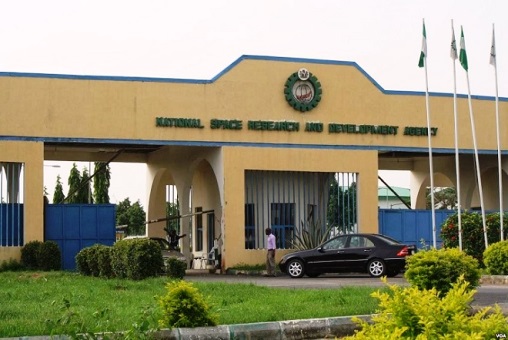– FG targets economic growth through NASRDA framework.
The Federal Government of Nigeria has projected an annual revenue of over $200 billion through the introduction of space regulation and licensing, as part of a broader strategy to unlock the country’s potential in the global space economy.
Chief Uche Nnaji, Nigeria’s Minister of Innovation, Science, and Technology, disclosed this at a one-day stakeholders’ engagement workshop on the commencement of space regulation, spectrum management, and licensing in Nigeria, organized by the National Space Research and Development Agency (NASRDA) in Abuja.
Nnaji described the move as a bold step towards building a competitive and regulated space industry that will contribute directly to economic development, national security, and technological leadership.
“With this new space regulation framework, companies such as Starlink and DSTV, who currently pay minimal fees while leveraging Nigerian space resources, will now be properly licensed and regulated,” the minister stated.
“We’re projecting over $200 billion annually, with an estimated 18–20% annual increase, following established strategies.”
Space Technology to Drive Oil, Gas, and Maritime Revenue
Nnaji further revealed that President Bola Ahmed Tinubu has approved the integration of space technology into Nigeria’s revenue generation architecture, particularly within maritime operations and the oil and gas sector.
“With satellite surveillance, Nigeria can now track all vessels entering its territorial waters—even when they attempt to avoid detection by switching off their engines. This will help in recovering lost revenue from unpaid bunker fees and other levies,” he explained.
“This alone could generate over $20 billion annually for the country.”
Shifting from Space Dreaming to Strategic Innovation
The minister emphasized that space is no longer the domain of dreamers, but a critical driver of national innovation, security, and economic sustainability.
“Our task is to create a transparent, regulated ecosystem that encourages public-private partnerships, boosts investor confidence, and delivers real value to Nigerians through satellite services, remote sensing, communications, navigation, and big data systems.”
He noted that the National Space Council, made up of 15 members, is actively working to revise the National Space Policy to align with modern global best practices in space governance.
NASRDA DG Advocates Commercialization, Legal Clarity
Dr. Matthew Adepoju, Director-General of NASRDA, said the workshop aimed to operationalize the 2015 regulatory framework outlined under the agency’s Act of 2010. He stressed the importance of commercializing Nigeria’s growing space sector, which has witnessed an increase in satellites and space-based assets.
“These regulations provide a comprehensive framework for compliance with international and national space laws, ensuring transparency, safety, and accountability,” Adepoju stated.
He added that implementing a structured licensing system will enable the government to charge appropriate fees for satellite launches, spectrum use, and data services, creating a sustainable revenue stream and attracting local and foreign investment into Nigeria’s space economy.
Legal Experts, State Governments Call for Policy Domestication
Renowned legal practitioner, Mr. Olisa Agbakoba (SAN), advocated a review and domestication of key international space treaties, including:
- Outer Space Treaty (1967)
- Rescue Agreement
- Liability Convention
- Registration Convention (1974)
- Moon Agreement
“Ratification alone isn’t enough. Without passage by the National Assembly, these treaties have no legal standing in Nigeria,” Agbakoba noted.
“The global space economy is projected to hit $1 trillion by 2030, and Nigeria must secure its rightful share by updating its legal, institutional, and regulatory frameworks.”
Promoting Innovation Through Coordinated Regulation
Speaking on behalf of the government of Adamawa State, Dr. Umar Bindir, Secretary to the State Government, emphasized the need for harmonized coordination of scientific and technical institutions involved in space-related activities.
“We must translate our scientific knowledge into practical solutions by mapping out mandates of universities, polytechnics, ministries, and agencies engaged in space science,” he said.
“To promote visibility, exhibitions and public awareness campaigns on space technology should be held every six months.”
Event Highlights and NASRDA Logo Launch
A key highlight of the workshop was the unveiling of NASRDA’s new logo, presented by Mrs. Esuabana Nko-Asanye, Permanent Secretary of the Federal Ministry of Innovation, Science, and Technology.
The unveiling symbolized a new chapter in Nigeria’s space regulation journey, focused on economic empowerment, innovation, and global competitiveness.
Nigeria poised to become a leading force in Africa’s space economy
With the implementation of a robust regulatory framework, Nigeria is poised to become a leading force in Africa’s space economy, tapping into its satellite assets, technical talent, and policy reforms to drive innovation, attract investments, and generate billions in national revenue.
Additional Reports: News Agency of Nigeria (NAN)

































